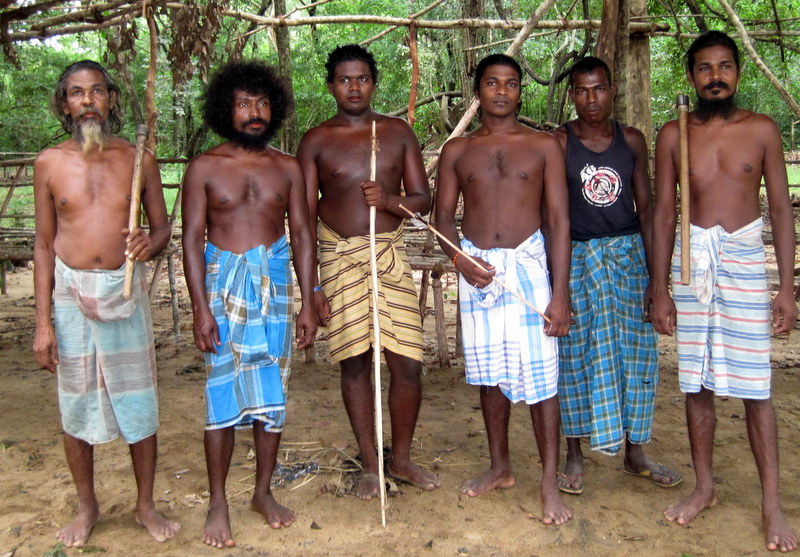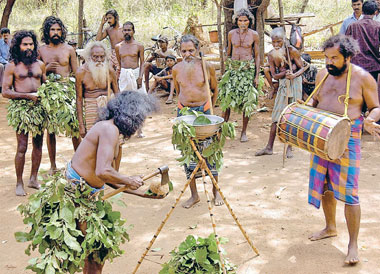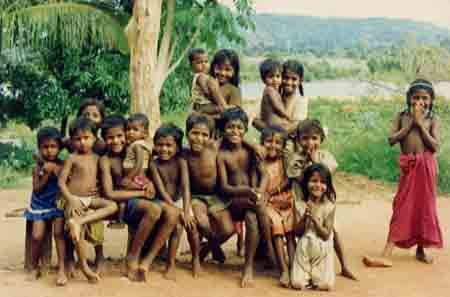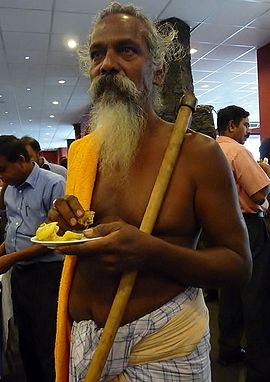Veddas are an indigenous people of Sri Lanka. They, amongst other self-identified native communities such as Coast Veddas and Anuradhapura Veddas, are accorded indigenous status. Most speak Sinhala and Tamil instead due to their indigenous language having become nearly extinct.

According to the genesis chronicle of the Sinhala people, the Mahavamsa (“Great Chronicle“), written in the 5th century CE, the Pulindas believed to refer to Veddas are descended from Prince Vijaya (6th–5th century BCE), the founding father of the nation, through Kuveni, a Princes of the yaksha tribe, he married.
The Mahavansa relates that following the repudiation of Kuveni by Vijaya, in favour of a Kshatriya-caste princess from Pandya, their two children, a boy and a girl, departed to the region of Sumanakuta (Adam’s Peak in the Ratnapura District), where they multiplied, and giving rise to the Vedda people. Anthropologists such as the Seligmanns (The Veddas 1911) believed the Veddas to be identical with the Yaksha.
They never cut their hair but tye it up on their Crowns in a bunch. The cloth they use, is not broad nor large, scarcely enough to cover their Buttocks. Thewilder and tamer sort of them do both observe a Religion. They have a God peculiar to themselves. The tamer do build Temples, the wild only bring their sacrifice under Trees, and while it is offering, dance round it both men and women.

Vedda people are also mentioned in Robert Knox’s history of his captivity by the King of Kandy in the 17th century. Knox described them as “wild men”, but also said there was a “tamer sort”, and that the latter sometimes served in the king’s army.

The Ratnapura District, which is part of the Sabaragamuwa Province, is known to have been inhabited by the Veddas in the distant past. This has been shown by scholars like Nandadeva Wijesekera (Veddhas in transition 1964). The very name Sabaragamuwa is believed to have meant the village of the Sabaras or “forest barbarians”. Such place-names as Vedda-gala (Vedda Rock), Vedda-ela (Vedda Canal) and Vedi-kanda (Vedda Mountain) in the Ratnapura District also bear testimony to this. As Wijesekera observes, a strong Vedda element is discernible in the population of Vedda-gala and its environs.